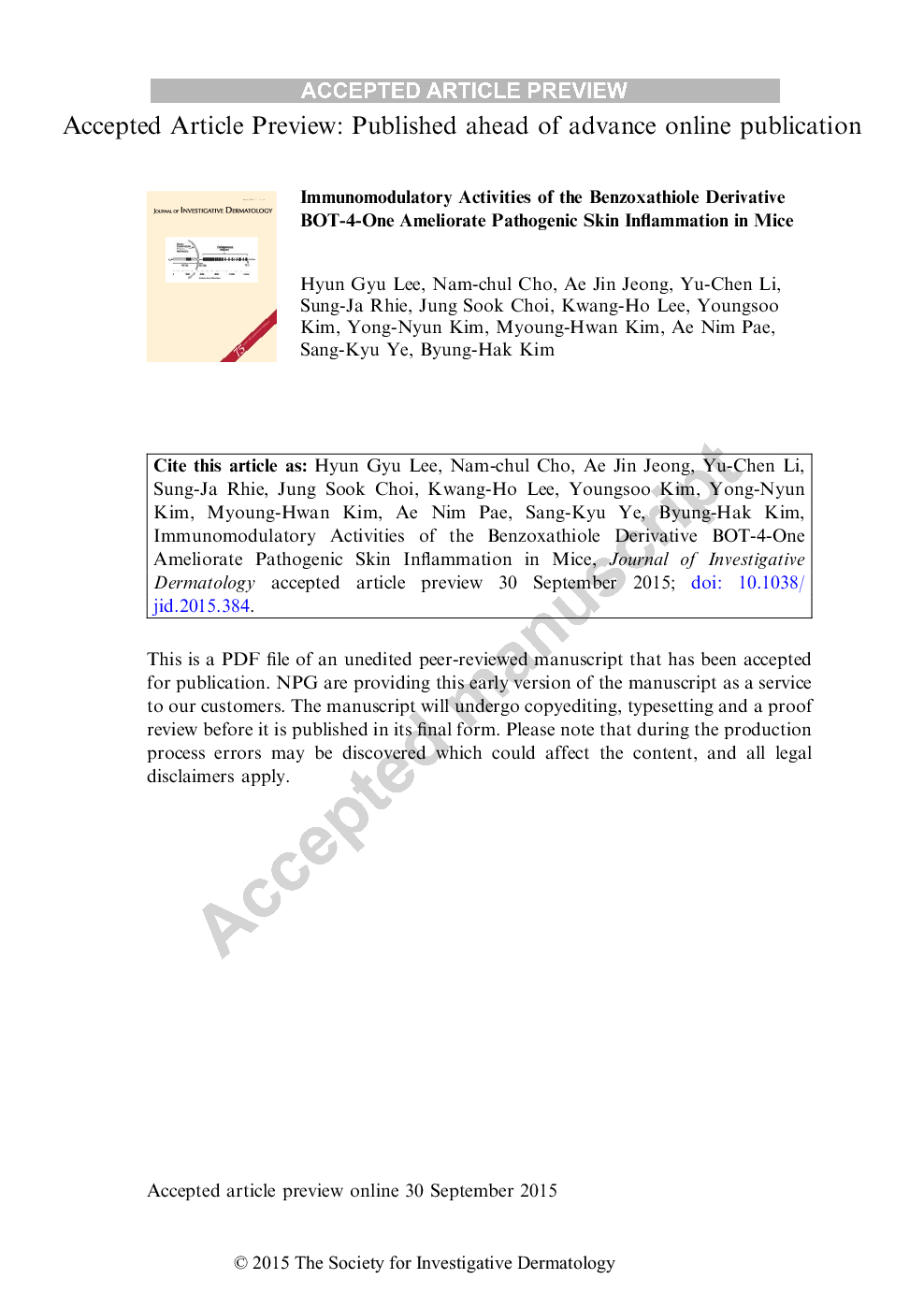| Article ID | Journal | Published Year | Pages | File Type |
|---|---|---|---|---|
| 6074776 | Journal of Investigative Dermatology | 2016 | 31 Pages |
Abstract
T-cell-mediated immune responses play an important role in body protection. However, aberrantly activated immune responses are responsible for inflammatory and autoimmune diseases. The regulation of pathologic immune responses may be a potential therapeutic strategy for the treatment of these diseases. Despite that multiple pharmacologic properties of benzoxathiole derivatives have been defined, the molecular mechanisms underlying these properties remain to be clarified. Here, we demonstrated the benzoxathiole derivative 2-cyclohexylimino-6-methyl-6,7-dihydro-5H-benzo[1,3]oxathiol-4-one (BOT-4-one) regulated immune responses and ameliorated experimentally induced inflammatory skin diseases both in vitro and in vivo. BOT-4-one inhibited the differentiation of CD4+ T-cell subsets by regulating the expression and production of T-cell lineage-specific master transcription factors and cytokines and activating the signal transducer and activator of transcription proteins. In addition, BOT-4-one inhibited TCR-mediated Akt and NF-κB signaling. Topical application of BOT-4-one ameliorated experimentally induced inflammatory skin diseases in mice models such as 2,4,6-trinitrochlorobenzene-induced contact and atopic dermatitis and IL-23-induced psoriasis-like skin inflammation. Our study demonstrated that BOT-4-one ameliorates inflammatory skin diseases by suppressing the pathogenic CD4+ T cell differentiation and overall immune responses.
Keywords
LPSFOXP3TNCBGATA-3RORγtSEAPNPTT helperIKKTreg2,4,6-trinitrochlorobenzeneIκB kinaseT-box expressed in T cellsSecretory alkaline phosphataseSTATT-betforkhead box P3Atopic dermatitisRegulatory T cellNeomycin phosphotransferaselipopolysaccharideSignal transducer and activator of transcriptionGATA binding protein 3
Related Topics
Health Sciences
Medicine and Dentistry
Dermatology
Authors
Hyun Gyu Lee, Nam-chul Cho, Ae Jin Jeong, Yu-Chen Li, Sung-Ja Rhie, Jung Sook Choi, Kwang-Ho Lee, Youngsoo Kim, Yong-Nyun Kim, Myoung-Hwan Kim, Ae Nim Pae, Sang-Kyu Ye, Byung-Hak Kim,
